第19章 CHAPTER Language(2)
Even these lame substitutes for pronouns are paraded as sparingly as possible. To the Western student, who brings to the subject a brain throbbing with personality, hunting in a Japanese sentence for personal references is dishearteningly like "searching in the dark for a black hat which is n't there;" for the brevet pronouns are commonly not on duty. To employ them with the reckless prodigality that characterizes our conversation would strike the Tartar mind like interspersing his talk with unmeaning italics. He would regard such discourse much as we do those effusive epistles of a certain type of young woman to her most intimate girl friends, in which every other word is emphatically underlined.
For the most part, the absolutely necessary personal references are introduced by honorifics; that is, by honorary or humble expressions.
Such is a portion of the latter's duty. They do a great deal of unnecessary work besides.
These honorifics are, taken as a whole, one of the most interesting peculiarities of Japanese, as also of Korean, just as, taken in detail, they are one of its most dangerous pitfalls. For silence is indeed golden compared with the chagrin of discovering that a speech which you had meant for a compliment was, in fact, an insult, or the vexation of learning that you have been industriously treating your servant with the deference due a superior,--two catastrophes sure to follow the attempts of even the most cautious of beginners.
The language is so thoroughly imbued with the honorific spirit that the exposure of truth in all its naked simplicity is highly improper.
Every idea requires to be more or less clothed in courtesy before it is presentable; and the garb demanded by etiquette is complex beyond conception. To begin with, there are certain preliminary particles which are simply honorific, serving no other purpose whatsoever.
In addition to these there are for every action a small infinity of verbs, each sacred to a different degree of respect. For instance, to our verb "to give" corresponds a complete social scale of Japanese verbs, each conveying the idea a shade more politely than its predecessor; only the very lowest meaning anything so plebeian as simply "to give." Sets of laudatory or depreciatory adjectives are employed in the same way. Lastly, the word for "is," which strictly means "exists," expresses this existence under three different forms,--in a matter-of-fact, a flowing, or an inflated style; the solid, liquid, and gaseous states of conversation, so to speak, to suit the person addressed. But three forms being far too few for the needs of so elaborate a politeness, these are supplemented by many interpolated grades.
Terms of respect are applied not only to those mortals who are held in estimation higher than their fellows, but to all men indiscriminately as well. The grammatical attitude of the individual toward the speaker is of as much importance as his social standing, I being beneath contempt, and you above criticism.
Honorifics are used not only on all possible occasions for courtesy, but at times, it would seem, upon impossible ones; for in some instances the most subtle diagnosis fails to reveal in them a relevancy to anybody. That the commonest objects should bear titles because of their connection with some particular person is comprehensible, but what excuse can be made for a phrase like the following, "It respectfully does that the august seat exists," all of which simply means "is," and may be applied to anything, being the common word--in Japanese it is all one word now--for that apparently simple idea. It would seem a sad waste of valuable material. The real reason why so much distinguished consideration is shown the article in question lies in the fact that it is treated as existing with reference to the person addressed, and therefore becomes ipso facto august.
Here is a still subtler example. You are, we will suppose, at a tea-house, and you wish for sugar. The following almost stereotyped conversation is pretty sure to take place. I translate it literally, simply prefacing that every tea-house girl, usually in the first blush of youth, is generically addressed as "elder sister,"-- another honorific, at least so considered in Japan.
You clap your hands. (Enter tea-house maiden.)
You. Hai, elder sister, augustly exists there sugar?
The T. H. M. The honorable sugar, augustly is it?
You. So, augustly.
The T. H. M. He (indescribable expression of assent).
(Exit tea-house maiden to fetch the sugar.)
Now, the "augustlies" go almost without saying, but why is the sugar honorable? Simply because it is eventually going to be offered to you. But she would have spoken of it by precisely the same respectful title, if she had been obliged to inform you that there was none, in which case it never could have become yours. Such is politeness. We may note, in passing, that all her remarks and all yours, barring your initial question, meant absolutely nothing.
She understood you perfectly from the first, and you knew she did; but then, if all of us were to say only what were necessary, the delightful art of conversation would soon be nothing but a science.
The average Far Oriental, indeed, talks as much to no purpose as his Western cousin, only in his chit-chat politeness replaces personalities. With him, self is suppressed, and an ever-present regard for others is substituted in its stead.
A lack of personality is, as we have seen, the occasion of this courtesy; it is also its cause.
That politeness should be one of the most marked results of impersonality may appear surprising, yet a slight examination will show it to be a fact. Looked at a posteriori, we find that where the one trait exists the other is most developed, while an absence of the second seems to prevent the full growth of the first.